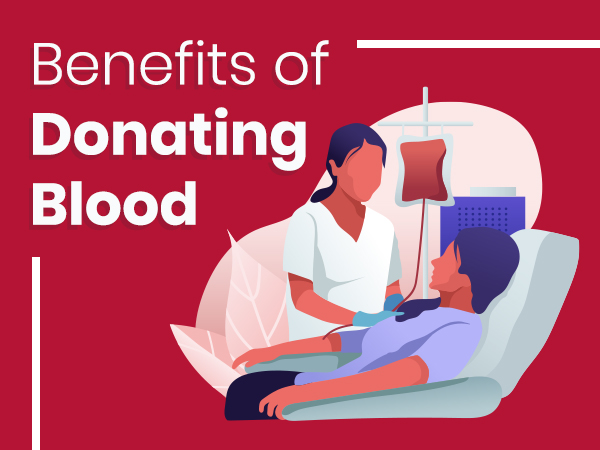Benefits of Donating Plasma
The Importance of Plasma Donation
Plasma donation is a selfless act that can have a significant impact on the lives of others. By donating plasma, you are contributing to the production of life-saving medications and therapies for individuals with various medical conditions. This article will explore the numerous benefits of donating plasma and shed light on why it is a crucial endeavor.
Lifesaving Potential
Donating plasma has the potential to save lives. Plasma is a vital component of blood that contains antibodies, proteins, and other essential substances. It is used to manufacture medications for individuals with immune deficiencies, bleeding disorders, and other medical conditions. By donating plasma, you are directly contributing to the production of these life-saving treatments.
Health Benefits for the Donor
While the primary goal of plasma donation is to help others, it also offers several health benefits for the donor. Regular plasma donation can help maintain healthy blood flow and reduce the risk of cardiovascular diseases. Additionally, the screening process before each donation ensures that donors receive a thorough health check-up, which can help detect any underlying health issues.
Financial Compensation
Many plasma donation centers provide financial compensation to donors for their time and effort. This compensation can vary depending on the center and location, but it can be a helpful incentive for individuals looking to make a positive impact while also earning some extra income.
Positive Environmental Impact
Donating plasma is an environmentally friendly practice. Plasma centers adhere to strict regulations and safety protocols, ensuring that the process is safe for both the donor and the environment. Additionally, plasma donation reduces the need for new plasma collection, which can help conserve resources and minimize waste.
Community Contribution
By donating plasma, you are actively contributing to the well-being of your community. Plasma-derived medications are essential for individuals with chronic illnesses, immune disorders, and other medical conditions. Your contribution can significantly improve the quality of life for those in need within your community.
Personal Fulfillment
Donating plasma can provide a sense of personal fulfillment and satisfaction. Knowing that your donation has the potential to save lives and make a positive impact on others can be an incredibly rewarding experience. It allows you to be part of a larger community that is dedicated to helping those in need.

Donating plasma is a noble act that offers numerous benefits, both for the recipient and the donor. From its lifesaving potential to its positive impact on the community and personal fulfillment, plasma donation plays a crucial role in healthcare. By donating plasma, you are making a significant difference in the lives of others and contributing to the advancement of medical treatments.
Frequently Asked Questions
1. What are the benefits of donating plasma?
Donating plasma can help save lives by providing essential proteins to patients in need. It can also help improve your overall health by stimulating the production of new plasma cells.
2. Can I get paid for donating plasma?
Yes, many plasma donation centers compensate donors for their time and effort. However, the amount of compensation varies depending on the location and regulations.
3. How often can I donate plasma?
Typically, you can donate plasma every 28 days. This ensures that your body has enough time to replenish the donated plasma.
4. Are there any health risks associated with donating plasma?
Donating plasma is generally considered safe. However, some potential risks include dehydration, lightheadedness, and bruising at the needle insertion site. It’s important to follow all guidelines and instructions provided by the donation center.
5. Can donating plasma help with weight loss?
No, donating plasma does not directly contribute to weight loss. However, it can indirectly support weight loss efforts by promoting a healthier lifestyle and regular check-ups.
6. Are there any age restrictions for donating plasma?
Yes, most donation centers require donors to be at least 18 years old. Some centers may have additional age restrictions or require parental consent for donors under 18.
7. Can I donate plasma if I have a medical condition?
It depends on the specific medical condition. Certain conditions may disqualify you from donating plasma, while others may not. It’s best to consult with the donation center and disclose any relevant medical information.
8. How long does the plasma donation process take?
The entire process usually takes around 1 to 2 hours. This includes the initial screening, medical history review, and the actual plasma donation.
9. Can donating plasma help boost my immune system?
Donating plasma does not directly boost your immune system. However, it can indirectly contribute to a healthier immune system by ensuring the availability of essential proteins for patients in need.
10. Can I donate plasma if I recently got a tattoo or piercing?
Most donation centers have specific guidelines regarding recent tattoos or piercings. In some cases, you may need to wait a certain period before donating plasma to ensure there is no risk of infection.




